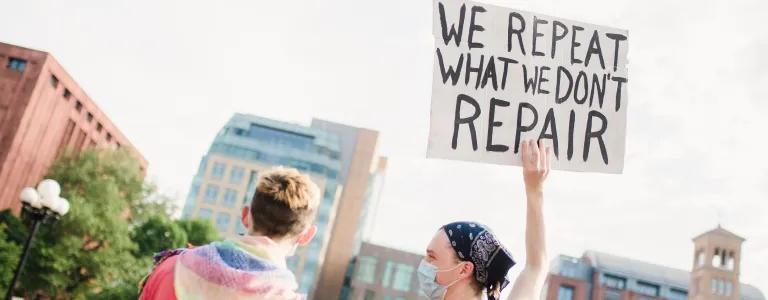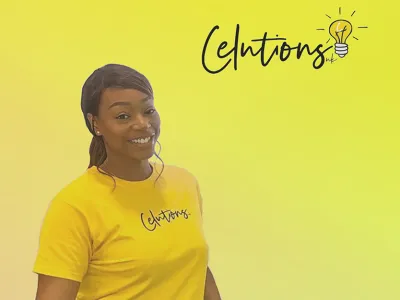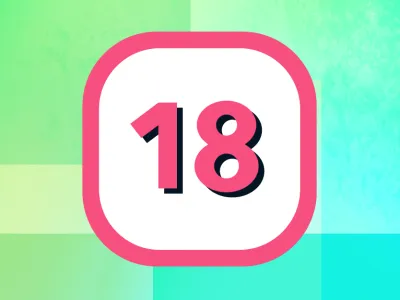
Six Steps To Becoming A Knowledgeable Ally
This year has been a strange and heavy one for many reasons. After George Floyd’s death in May, hundreds of thousands of people rose up, spoke up, and took to the streets to protest racial injustices all over the world. The Black Lives Matter movement has never been more prevalent, and it’s got a lot of a non-Black people all over the world looking for ways in which they can support the Black community, become anti-racist, and fight for equality and justice as an ally.
But what does it take to become a true ally?
Well, it’s a lot more than just saying you believe that Black lives matter on Instagram. It’s a lot more than just not being racist. It’s about putting in the work, educating yourself, messing up (you probably will mess up) and learning from your mistakes, becoming actively anti-racist, and retraining yourself out of a system that was designed to be oppressive. Over the last few years, we (NCS) have had to hold a mirror to ourselves and take action to become a better ally. It’s not an easy thing, but it shouldn’t be easy. It takes work. And we still have work to do, every day. The journey is a continual one, and we hope you’ll join us on it.
Here are six steps you can take to become a more knowledgeable ally.
1. Listen and learn
First up, it’s time to get educated. As Happiful - an organisation who provide informative, inspiring and topical stories about mental health and wellbeing - say, “Listen and listen good. Listen, without asking questions.” It’s time to take in the stories, history, culture and voices of people in the Black community to better understand their feelings, their struggles and their needs. But, importantly, you have to do this on your own. Don't go to your Black friends or community with a list of questions and expect them to give you all the answers. Your education is not someone else’s burden. Put in the work yourself.
Of course, that doesn’t mean you can’t look to Black voices to get your answers. There are thousands of resources already available from Black writers, public speakers, poets, politicians, actors, influencers and more that you can sink your teeth into, to learn about the Black experience and how to become an ally, how to become anti-racist, and how to do your bit.
We recently wrote a blog about the Five Must Read Books On Black History And Culture, so why not start there and make your way through.
If books aren’t really your thing, take a look at cultural theorist, Brittney Cooper’s Ted Talk on The Racial Politics of Time, or this discussion led by author and historian Ibram X. Kendi on The Difference Between Being ‘Not Racist’ and Anti-Racist.
Allowing different perspectives, voices and stories into your life will give you valuable knowledge, strengthen your allyship and broaden your ability to empathise with the communities you’re fighting for. Educating yourself is just the first step in the journey.
And if you’re reading this while we’re still taking questions, you can Ask Us Anything: Black Culture and Identity in the UK and have them answered by a professional from Ting.
2. Understand your privilege
Privilege, especially white privilege, means that you actively benefit from the oppression of people of colour. Courtney Ahn, a Korean American designer and illustrator, created a Guide to White Privilege, which amassed almost 800k likes and shares on Instagram this year. The first point? White Privilege doesn’t mean your life hasn’t been hard, it means your skin tone isn’t one of the things making it harder. And that’s just it. As a non-Black person, you immediately have a privilege in this world that makes your life easier. And, like Courtney states, it doesn’t mean you don’t have struggles. But it does mean that you get to wake up every day without thinking that something could happen to you, your friends, your family, just because of the colour of your skin.
So where does this privilege come from? Well, it’s always been here. Since the beginning of time. The world has continually been designed to oppress people of colour. And because of that, as a non-POC, you benefit. Systemic racism exists in every level of society.
So what can you do? First things first, you have to acknowledge the privilege. As hard as it is, as embarrassing or as guilty as it may make you feel, you have to understand that it’s the truth. Then, you have to do something about it. Because even though the world is designed to oppress people of colour, you don’t have to. You can fight for change. As Rachel, a Young Ambassador for The Mix says, “Racism cannot be removed in areas that consist of a white majority if the white majority do not join the fight.”
3. Speak up
So how do you join the fight? Well, you can use your privilege for good, by speaking up and having hard conversations. Rachel goes on to explain that “it is essential to acknowledge the inequalities around us so that we can not just overcome or move past from them, but so that we can completely transform the various societal systems that put these inequalities in place.”
Raise your voice when things don’t feel right. Even if it’s hard. That means calling out your friends, family, co-workers, teachers, or random people on the bus if they say something racist (just make sure it’s safe for you to do so, and if not, seek official help). And it means not making excuses for people. The whole ‘they’re from a different generation’ or ‘they’re too young to understand properly’ reasonings that we’ve all heard before aren’t good enough anymore. We all - no matter how young or old - have the ability to learn and change for the better. Happiful also gives a solid piece of advice that you’ll run into many times; “Don’t be afraid to get things wrong. If it’s a choice between not speaking up at all or speaking out and getting it wrong, get it wrong. Get it wrong, learn from it, share what you’ve learnt and do better next time.” Change doesn’t happen overnight. And even if you’ve got the best intentions, you’ll still mess up at times. But it’s about what you do after you mess up. Continue to learn, continue to grow and continue to fight.
Do it in person and do it online. Call people out on social media if they’re being racist. Call out companies or organisations that you love, who aren’t actively being anti-racist, inclusive or diverse in their job roles and their respresentation. Speak loudly and speak proudly of what you believe in.
4. Open up
Once you’ve found your voice, use it to amplify the voices, stories, culture, history, successes and struggles of the Black community. Every time you find a new article, book, movie, podcast, tv show or post from a Black voice, share it everywhere. Send it to everyone. Curate your life - and your social feeds - to include more Black creators and voices. The more your life (on and off line) represents the actual diverse world we live in, the more you’ll understand.
Follow people and organisations on Instagram like Jessica Nabongo, Gal-dem, Color of Change, Munroe Bergdorf, BlackVisions, The Black Curriculum, Black Minds Matter UK, Lee Merrit, Caleb Femi, No White Saviors, Check Your Privilege, Reni Eddo-Lodge, Ibram X. Kendi, Tabitha Brown, Ava DuVernay, Chidera Eggerue, Diary of a Dad, Mr Hat, Jess, Uju Asika, Billy Porter, Cleo Wade, Indya Moore, Antuan Byers, Badguild, Shea Coulee, Lakwena and Black Creators Matter to name a few! And share, share, share their posts, thoughts, profiles and creations.
5. Show up
If you’re speaking up, and opening up, the next step is to show up. It’s all good and well filling your brain with knowledge and passion for the cause, but you have to also put that passion into action. As much as a #BlackLivesMatter might mean on social media, it loses all impact if you’re not willing to back it up with real tangible change.
Courtney Ahn puts it perfectly in her guide: Being an ally is not (just) measured by a series of performative steps/actions: reading a book, listening to a podcast, posting about injustice, etc. The goal is not to become an ally or be a better white person, but to remove the systems that give you privilege and oppress Black folx. Liberation of Black, Indigenous People of Colour is THE goal.
So to do this, you have to take action. That means showing up to peaceful (socially-distanced) protests if you are able to or want to, signing petitions, and calling people out. It means voting for change when you’re able to. It means supporting Black creators, local businesses and organisations (check out Black 2 Business to search for Black owned businesses and service providers in your area). If you have Black friends and they invite you to an event that means something to them - go. And hey, if you’re on NCS and thinking of a social action project, why not do something that will support the Black community where you live.
And, if you have the means to, find anti-racism charities that you can donate your time (or money) to. Some anti-racism charities in the UK are Show Racism The Red Card, Stephen Lawrence Charitable Trust, Stand Against Racism and Inequality, and Stop Hate UK.
6. Keep it going
Finally, one of the key things that you can do as an ally, is to never let the momentum fade. As with all things, news stories change, something else gets thrust in the spotlight and it can feel like the buzz, the empowerment and the drive for the cause has faded. But that simply isn't true. Even now, five months after the death of George Floyd, there are still protests happening daily in honour of his name. So let your motivation drive you. Keep learning, keep understanding, keep speaking up, opening up and showing up and just keep going.




